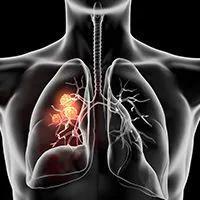
Dr Wakelee on Key Trials With Perioperative Immunotherapy in Early-Stage NSCLC

Heather Wakelee, MD, FASCO, discusses the clinical significance of updated data from several key trials evaluating perioperative immunotherapy in early-stage non–small cell lung cancer.
Heather Wakelee, MD, FASCO, professor of medicine, chief, Division of Oncology, Stanford University School of Medicine, deputy director, division chief, Medical Oncology, Stanford Cancer Institute, president, International Association for the Study of Lung Cancer, discusses the clinical significance of updated data from several key trials evaluating perioperative immunotherapy in early-stage non–small cell lung cancer (NSCLC).
With the recent influx of positive data from perioperative immunotherapy trials in NSCLC, this adds further complexity to the navigation of neoadjuvant and adjuvant treatment strategies in this space, Wakelee begins. These phase 3 trials include the AEGEAN (NCT03800134), NEOTORCH (NCT04158440), and KEYNOTE-671 (NCT03425643) studies, she expands.
The AEGEAN trial evaluated the use of durvalumab (Imfinzi) in treatment-naïve patients with EGFR and ALK wild-type, resectable stage IIA to IIIB NSCLC.
In NEOTORCH, patients with EGFR and ALK wild-type, resectable stage II and III NSCLC were randomly assigned 1:1 to neoadjuvant toripalimab plus platinum-based chemotherapy or matched placebo plus chemotherapy. Following surgery, patients were treated with chemotherapy plus toripalimab or placebo depending on randomization, followed by toripalimab or placebo for another 13 cycles.
Lastly, treatment-naïve patients with pathologically confirmed, resectable stage II, IIIA, or IIIB NSCLC in KEYNOTE-671 were treated with pembrolizumab (Keytruda) plus a chemotherapy regimen vs matched placebo plus chemotherapy. This was followed by surgery and additional cycles of pembrolizumab or placebo.
All 3 trials demonstrated improved event-free survival and pathologic complete responses with their respective immunotherapy regimens, Wakelee reports. Although survival data from these trials are currently immature, there was a trend towards improved overall survival that may prove statistically significant, she adds. These data confirm the benefit of perioperative immunotherapy in early-stage NSCLC that was previously shown in the phase 3 CheckMate 816 trial (NCT02998528) of neoadjuvant nivolumab (Opdivo) plus chemotherapy in resectable NSCLC, Wakelee notes.
Moreover, positive results from these trials are hoped to lead to FDA approvals for all 3 regimens in early-stage disease, Wakelee adds. The accompanying expansion of neoadjuvant and adjuvant approaches will require better identification of patients who would most benefit from neoadjuvant or adjuvant therapy alone vs together, she concludes.






































